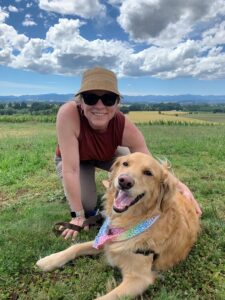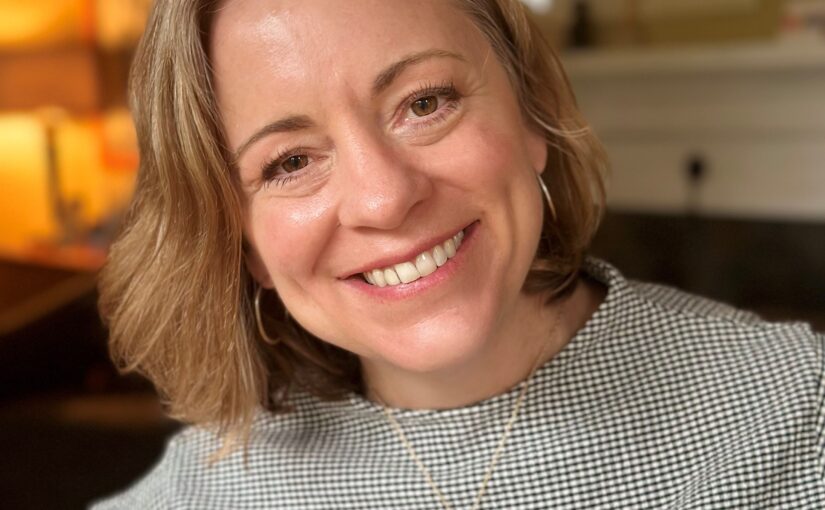ATF Medical is genuinely excited about our new occupational therapist, Melissa M. Smith, OTR/L, ECHM, CHAMP, CAPS.
Melissa has dedicated her OT career to helping injured people obtain home environments that are safe, and accessible, and facilitate mobility. We sat down with her to learn why she became an OT and what led her into an adaptive housing practice.
What can you tell us about occupational therapy?
Occupational therapy takes a unique, holistic approach to working with people. We look at the health conditions—whether they come from an injury or progressive condition—and how their conditions impact them, how it affects their daily lives–what they like to do and what they need to do to take care of themselves. Then we address the deficits they’re experiencing because of the condition. In the case of a back injury, for example, we might modify a job task, so the employee doesn’t repeatedly pick up heavy objects, teach good body mechanics, or recommend a long-handled sponge so the injured worker doesn’t have to bend over to reach their feet. We take a broad view of how the injury affects them.
You seem to have a strong interest in construction, did you ever work in the construction field?
No! Well, I was always been interested in design and function and how it affects a person’s happiness and independence. I thought about being an interior designer, but my interest in occupational therapy was stronger. Keeping people in their home is very important to me because “home” is so much more than a house.
Where did you go to college?
My occupational therapy degree is from the University of Puget Sound in Tacoma, Washington. I also have a bachelor’s in psychology from the University of Iowa. Later I took courses to learn more about building in construction, architecture, and interior design at Portland Community College.
Tell us about your early career.
I worked in acute care hospitals in Denver and Portland for several years. I was also a Traveling OT. Like traveling nurses, we work in one location for three months, then move to another. I worked in nine locations, including two stints in Portland.  I worked in inpatient rehab, home health, and nursing facilities. I also worked two summers at a camp in Newport, Rhode Island called Shake-A-Leg. We provided occupational therapy for one group of young campers with developmental disabilities and another group of adults who have spinal cord injuries. In addition to general rehab, we adapted different sports, sailing, swimming, tennis…all kinds of sports and that was a lot of fun.
I worked in inpatient rehab, home health, and nursing facilities. I also worked two summers at a camp in Newport, Rhode Island called Shake-A-Leg. We provided occupational therapy for one group of young campers with developmental disabilities and another group of adults who have spinal cord injuries. In addition to general rehab, we adapted different sports, sailing, swimming, tennis…all kinds of sports and that was a lot of fun.
You traveled so much and saw so many cities; why did you decide to settle in Portland?
My cousin and aunt live here and when I was a Traveling OT, I lived in Portland for two, separate three-month stints and just fell in love with the city and area. There are so many cute neighborhoods, with beautiful landscaping and old homes. It’s just a lush, green and very cozy city and the people are very friendly. Plus, it’s ideally situated, just 1.5 hour’s drive to ski resorts in one direction and 1.5 hours to the ocean on the other side. It’s an unbeatable area.
How did you transition from traditional OT to being a clinical specialist on the home environment side?
I read an article in OT Practice Magazine about OTs working in home modifications and thought, “This is perfect for me!” Being a home mod OT merges my medical and interior design interests. Home Mod OTs help people who have experienced disability function better in their own space by making a personalized fit for them.
To learn more about it, I took some certification programs–ECHM, CAPS, CHAMP—and some architecture, interior design, and construction at Portland Community College. I even got my residential contractor license from the Oregon Construction Contractors Board. And I did a lot of independent reading.
And you started working for Kaiser Permanente Home Care Services in 2012?
Yes, I conducted evaluation and treatment sessions, and generated goals and plans of care. I got into the assessment of home environments and recommended medical equipment to promote independence and better accessibility of the home.
By then, you knew you had found your passion?
I did and I started a company, LiveAble LLC, that assessed and modified homes and recommended medical, rehab and mobility equipment. We consulted on remodeling projects to make sure the accessibility and safety goals were achieved. Our patients ranged from young children to adults who wanted to age in place, and we served quite a few injured workers. LiveAble had a contract with the State of Oregon to provide environmental modification consulting services for Department of Human Services clients, including aging adults and people with developmental disabilities.
You’ve worked with so many different types of payer groups. What do you like about workers’ compensation?
Workers’ comp is generally willing to provide people the things they need—rehab technology, remodels, medical equipment—compared to Medicare which doesn’t usually provide home modifications or complex equipment. Because my recommendations are accepted and the changes get implemented, I can see how they improve workers’ lives. I feel I can make a real difference.
I know you haven’t been here long, but what are your first impressions about ATF Medical?
I got such a warm welcome from everyone – this seems like a company that people end up staying in because the culture is welcoming warm and positive. People celebrate others’ wins. It’s very collaborative – and organized!

Is there anything you’d like to share about your personal life?
I’ve lived in Portland for 15 years and have been married for 10. We like to travel, ski, and cook together. My husband teaches technology to middle school students, and we have a dog, Harriett, who is our baby.
I love to design and decorate. My first project was designing a closet through Ikea in a 483-square-foot studio. It took a lot of thinking and planning. In a home that small the closet needs to be very functional!
But my biggest hobby is tennis and I’m on several Portland teams. I’m very competitive in sports and tennis is great exercise and a lot of fun.
Help us welcome Melissa welcome! Email her at msmith@atfmedical.com.

